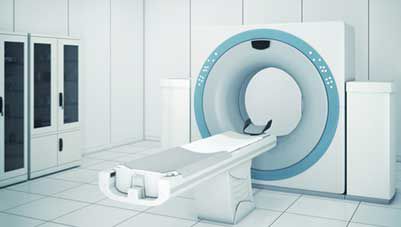Cardiovascular technology is a dynamic and vital field in healthcare that revolves around diagnosing and treating heart and blood vessel conditions. A cardiovascular technologist works alongside physicians to provide critical diagnostic and therapeutic services, often operating advanced equipment and assisting in procedures that save lives. This career is ideal for those passionate about healthcare and technology, offering both challenges and rewards.
What is a cardiovascular technologist?
A cardiovascular technologist is a healthcare professional specializing in cardiovascular diagnostics and interventions. They play an essential role in performing tests such as echocardiograms, ECGs, and stress tests. They also assist in procedures like cardiac catheterizations and angiograms. Their work ensures accurate diagnosis and effective treatment for cardiovascular conditions, improving patient outcomes significantly.
Beyond technical tasks, cardiovascular technologists often interact closely with patients, explaining procedures, alleviating concerns, and providing care during tests. This combination of technical expertise and patient engagement makes the role uniquely impactful.
How to become a cardiovascular technologist in India
To pursue this career, students must first complete higher secondary education with Physics, Chemistry, and Biology (PCB). The next step is enrolling in a relevant program, such as a Bachelor of Science (B.Sc.) in Cardiovascular Technology. Many universities and medical institutions in India offer this course, combining theoretical knowledge with practical training.
Internships and clinical training are critical to gaining hands-on experience. Additionally, certifications like the Registered Cardiovascular Invasive Specialist (RCIS) or Advanced Cardiovascular Life Support (ACLS) enhance qualifications and career prospects.
For those unable to commit to a degree program, diploma courses offer an alternative pathway, albeit with more limited career options initially.
Cardiovascular technologist eligibility criteria
- Academic Requirements: Completion of 10+2 with PCB subjects and a qualifying percentage set by the institution.
- Entrance Exams: Some programs may require entrance tests or interviews.
- Age Limit: Typically, candidates must be at least 17 years old.
- Other Factors: Physical fitness and strong hand-eye coordination are often preferred attributes for this role.
Top cardiovascular technologist courses and certifications
Pursuing specialised courses is the first step toward becoming a cardiovascular technologist. Bachelor’s degree programs, like B.Sc. in Cardiovascular Technology, are the most comprehensive option. These programs cover anatomy, physiology, medical imaging, and clinical procedures.
For those looking to enhance their skills, certifications like Basic Life Support (BLS) and ACLS are invaluable. The RCIS certification is highly respected in the field and demonstrates advanced proficiency in cardiovascular diagnostics and interventions.
Skills required for cardiovascular technologists
Success in this field requires both technical and interpersonal skills:
- Technical Proficiency: Expertise in operating diagnostic machines like ECG and echo machines.
- Analytical Skills: Ability to interpret test results and identify abnormalities.
- Communication Skills: Effectively conveying information to patients and collaborating with healthcare teams.
- Empathy and Patience: Providing comfort and care to patients during stressful medical procedures.
- Adaptability: Handling emergencies and working under pressure with composure.
Job opportunities for cardiovascular technologists
The demand for cardiovascular technologists spans various sectors:
- Hospitals: Integral to cardiology departments, assisting in invasive and non-invasive procedures.
- Specialized Clinics: Focused roles in diagnostic centers and cardiac care units.
- Research Institutions: Involvement in clinical trials and the development of innovative cardiovascular treatments.
- Teaching and Training: Opportunities to educate aspiring technologists in academic settings.
With advancements in medical technology, job opportunities continue to grow, providing stability and growth for professionals in this field.
Career growth and specialisations for cardiovascular technologists
Cardiovascular technologists can explore numerous avenues for career progression and specialization. Experienced professionals often take on supervisory roles, manage diagnostic labs, or train new technologists.
Specialisations include non-invasive cardiology (like echocardiography), invasive cardiology (such as catheterizations), and electrophysiology. These focused areas allow technologists to delve deeper into specific aspects of heart health and procedures.
Continual learning through certifications and advanced degrees ensures that technologists remain at the forefront of the industry, opening doors to research and leadership roles.
Conclusion
A career as a cardiovascular technologist offers an excellent blend of technical expertise and patient care. The growing need for cardiovascular services ensures abundant opportunities for those in the field. For professionals aiming to enhance their skills or establish their practice, a doctor loan provides financial support for education and equipment needs. Embark on this fulfilling path to make a lasting impact in healthcare while enjoying personal and professional growth.
















